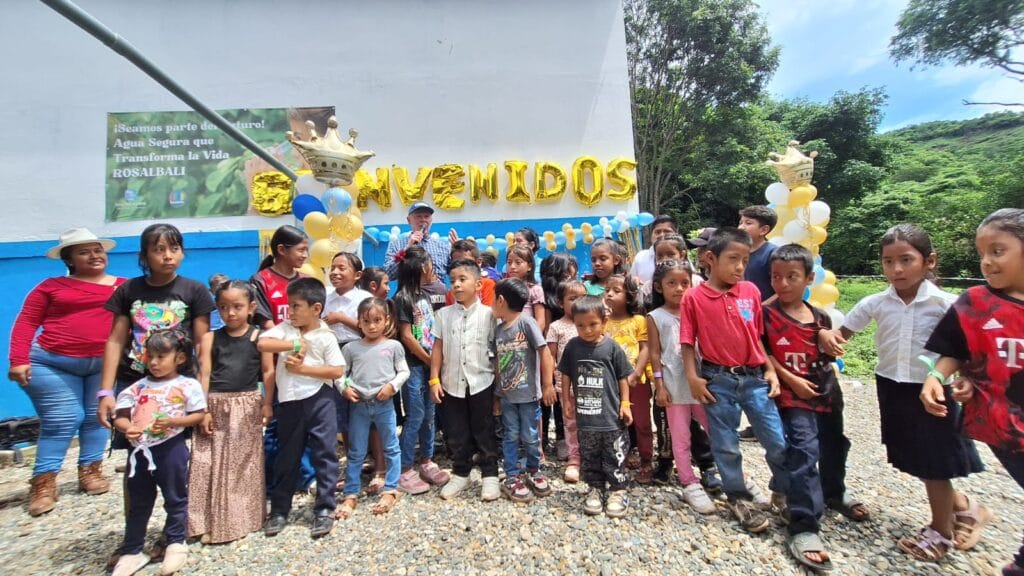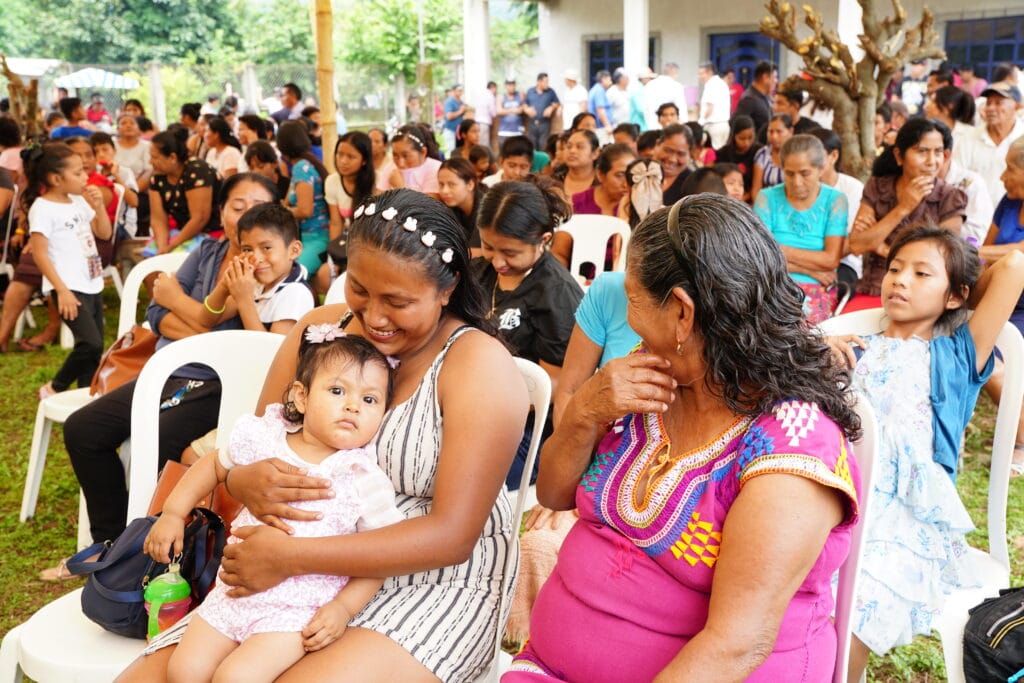At Healing Waters, resilience isn’t just a core value—it’s a lifeline. It’s what allows us to keep showing up in some of the most difficult places on earth, where safe water is not a given, but a distant dream. While we’re used to certain conveniences here in the U.S., working in global contexts requires a different mindset—one that embraces setbacks not as failures, but as invitations to adapt, persevere, and press on.
Resilience means believing in the vision long after the excitement has faded. It means pivoting when plans fall through, working late into the night, or waiting patiently through red tape and rainstorms. It’s about keeping the end in mind: safe water for every person, everywhere.
Rosalbali, Mexico: A Monument to Grit

We recently celebrated the inauguration of our largest water system to date in the rural communities of Rosalbali, Mexico. The celebration was powerful—but the journey was anything but easy.
This project threw us curveballs at every stage. The remote location made coordinating construction incredibly difficult. There were no roads to the installation site, so large equipment had to be carried uphill by hand—often by human chains of over 200 people. Local volunteers, offering their sweat equity to bring water to their community, juggled labor with daily responsibilities, which naturally led to a slower pace of progress.
Then came the environment. A heavy monsoon season triggered multiple mudslides that blocked vehicle access and damaged infrastructure. The engineering team faced tough terrain and a highly variable river flow, forcing repeated design adjustments to the catchment system.
Even communication was a challenge. There was no cell service, no data—no way for the field staff to contact our U.S.-based engineers in real-time. So we installed a Starlink internet system to bridge the gap, enabling the team to get expert support and push through the technical complexities.
And yet—despite every obstacle—we did not give up.
This water system will not only bring safe water directly to homes but will also reduce disease, free up time for families who once spent hours collecting water, and create lasting opportunities for education and economic growth. It’s more than pipes and tanks. It’s dignity, health, and hope restored.
Resilience: More Than a Value—A Core Competency
In global development, resilience is not optional—it’s essential. Too many well-meaning projects falter when plans derail. When that happens, it isn’t just infrastructure that’s left behind—it’s trust. Healing Waters is committed to seeing projects through because we know that every promise we make is a commitment to real people.
Resilience allows us to:
- Navigate natural disasters, political shifts, or logistical failures
- Tap into local partnerships and stakeholder networks
- Innovate when original plans no longer apply
- Learn from each challenge and apply those insights moving forward
The Rosalbali project taught us lessons we’ll carry into future work. That’s the beauty of resilience—it not only accomplishes the immediate goal, but also strengthens our capacity for what comes next. It’s a muscle we build with each challenge, making our organization more agile, more creative, and more equipped to take on even tougher purification challenges ahead. Resilience made the inauguration celebration that much sweeter and meaningful.

A Universal Truth
Resilience isn’t just for nonprofits or engineers—it’s for all of us. Each of us faces moments when the path forward seems blocked, when we’re asked to dig deeper, work harder, or believe again. These aren’t just challenges—they’re opportunities for transformation.
Whether you’re lifting tanks up a mountainside or facing trials in your own life, know this: resilience doesn’t just get you to the finish line. It changes you along the way.
